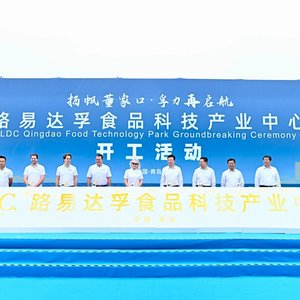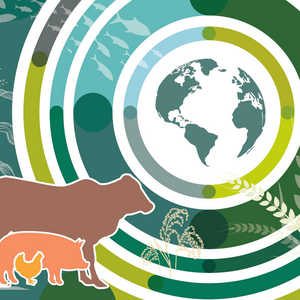AIM: To create an arena for the development and discussion of international education and research cooperation in aquaculture at BSc, MSc and PhD level and to provide information about research being conducted at the Norwegian University of Life Sciences (UMB).
Aquaculture production is becoming more and more internationalised. How does this affect the need for education and the future requirements for graduates? What are the resources needed to accomplish a sound educational programme to meet these ever advancing needs?
Trends in international aquaculture production will be presented at the seminar, since these are the major consideration for the planning of tomorrow’s education in aquaculture.
DATE: August 7-8. 2005 (accommodation and a tour program will also be available from August 6)
PLACE: The Norwegian University of Life Sciences (UMB), Ås, Norway.
Accommodation and reception will be at Oscarsborg, Drøbak, a historic island in the picturesque Oslo Fjord.
TARGET PARTICIPANTS: Educational Institutions worldwide, Governments of countries with industries related to aquaculture and biotechnology and related industries.
Preliminary program:
SUNDAY, AUGUST 7
12.00 Registration
13.00 Official opening and welcome. Minister of Fisheries and Coastal Affairs Mr Svein Ludvigsen. Executive Director Mr Einar Eriksen
13.30 The importance of education for development of international aquaculture, a story based on history. Professor Trygve Gjeldrem
14.00 Trends in aquaculture. Where are the challenges for future development in education and research? Professor Ian Bryceson
14.30 How to facilitate the “Internationalisation of higher studies across borders. Vice-Rector, Professor Anne Marte Tronsmo
15.00 Break
15.30 Where is the industry going? Industrial needs and requirements for future candidates in aquaculture. Corporate Director Food Safety, Reid Hole, NUTRECO
16.00 How the industry can grow and educate itself with the limited resources - future possibilities? Professor Trond Storebakken
16.45 Guided tour to see how research facilities can be utilized as an integrated part of an educational program
19.30 Reception – Oscarsborg. In the presence of Minister of Fisheries and Coastal Affairs Mr. Svein Ludvigsen
20.30 Dinner Oscarsborg
MONDAY. AUGUST 8
08.30 Future governmental regulations in the aquaculture industry set new requirements for educational knowledge and procedures. Norwegian authorities
09.00 Education in Genetics as a tool for the development of the aquaculture industry. Professor Sibjørn Lien
09.30 The globalisation of aquaculture education through the use of the Internet. Professor Anders Kiesling and associated professor Odd-Ivar Lekang
10.00 Aquaculture studies in Norway. Viktor Perez MSc. Feed Manufacturing
10.30 Break
10.45 The future education of an aquaculturist and feed technologist Edward Perez
11.15 Water quality requirements and animal welfare. Professor Bjørn Olav Rosseland
11.45 Biotechnology as a tool for development of an industry based on by-products from fish processing. Professor Vincent Eijsink
12.15 Breeding and genomics used to enhance world tilapia production. Professor Hans Magnus Gjøen
12.45 Ending of seminar
13.00 Lunch
After lunch, time for networking, and possible programmes on Akvaforsk and Matforsk
The seminar is free (does not include accommodation and meals). Registration deadline: June 1. 2005. For more information, contact: edward.perez@umb.no. Phone: + 47 64 96 52 04 and + 47 92 86 72 57
About UMB
The Norwegian University of Life Sciences (UMB) is a leading international centre of knowledge in higher education and research, with a focus on interaction between natural sciences, technology and social sciences.
It contributes to finding solutions to the challenges of today and tomorrow. Specialising in the areas of agricultural production, the environment, land use management and business development.
Research:
Strong link between research and education
Long-term basic research and innovation
Core activities:
• Environment
• Food production
• Biotechnology
• Aquaculture
• Innovation and development
English Master’s degree programs
• Agro-ecology
• Applied Aquaculture
• Development and Resource Economics
• Development Studies
• Feed Manufacturing Technology
• Management of Natural Resources and Sustainable Agriculture
• Tropical Ecology and Management of Natural Resources










